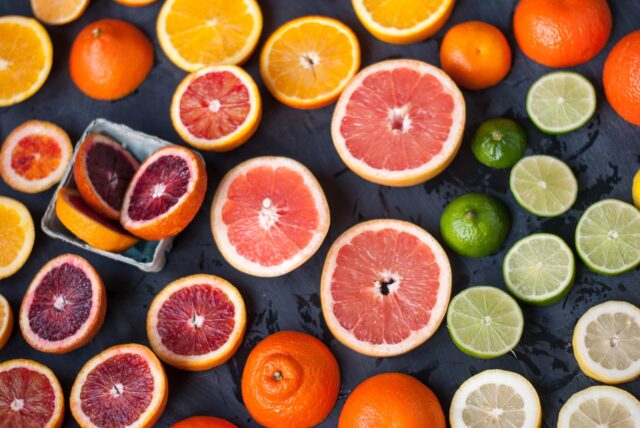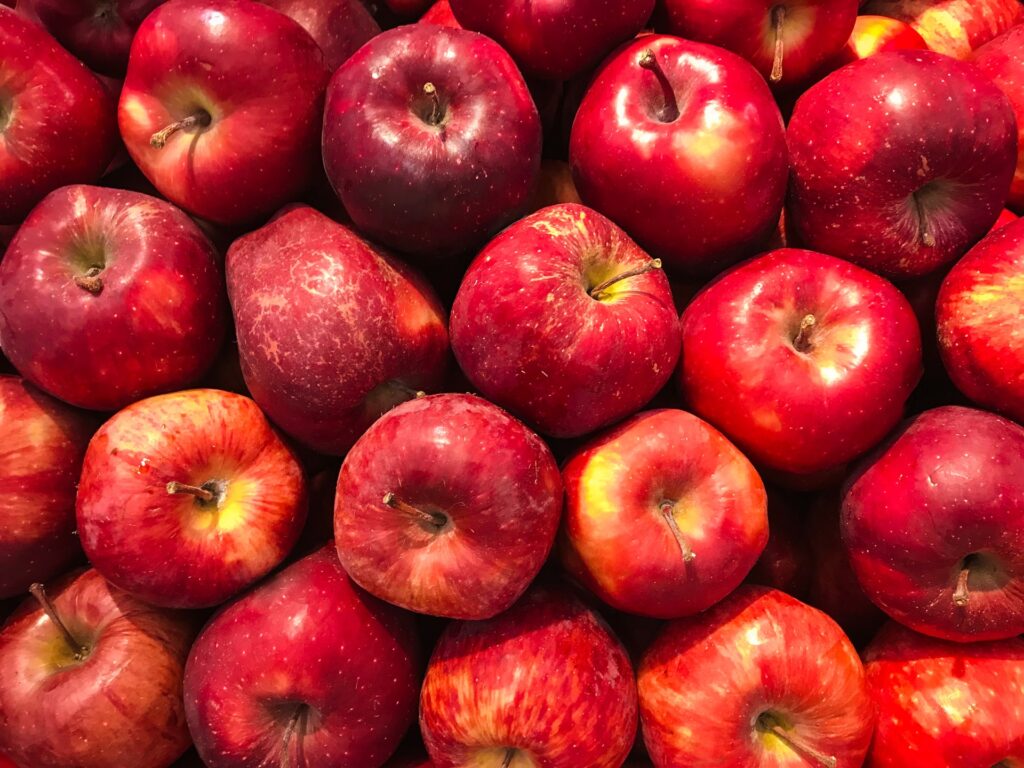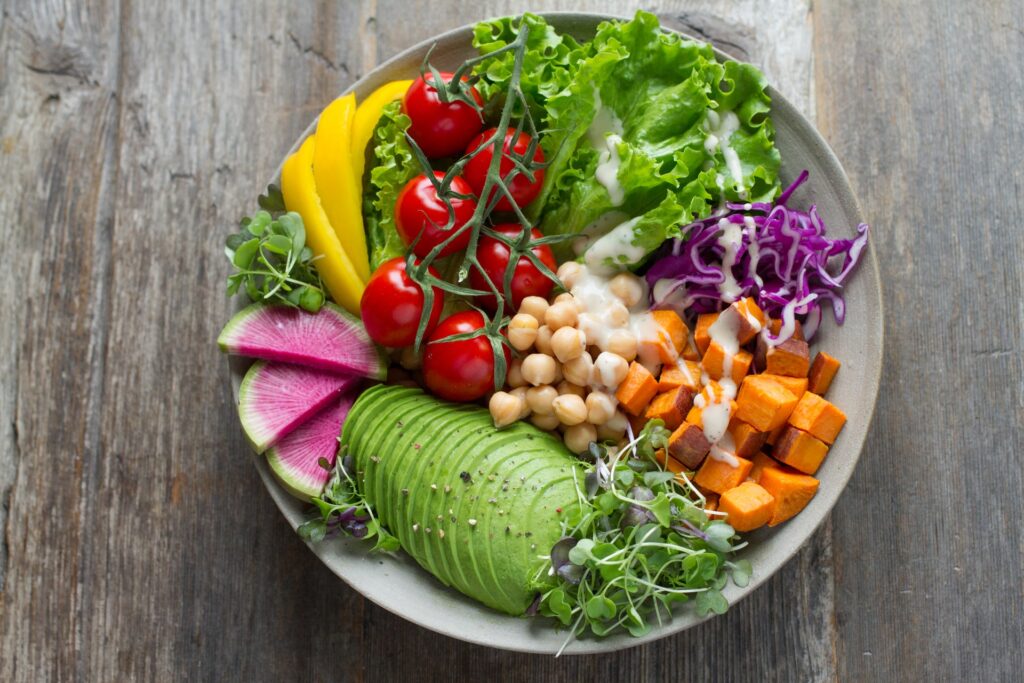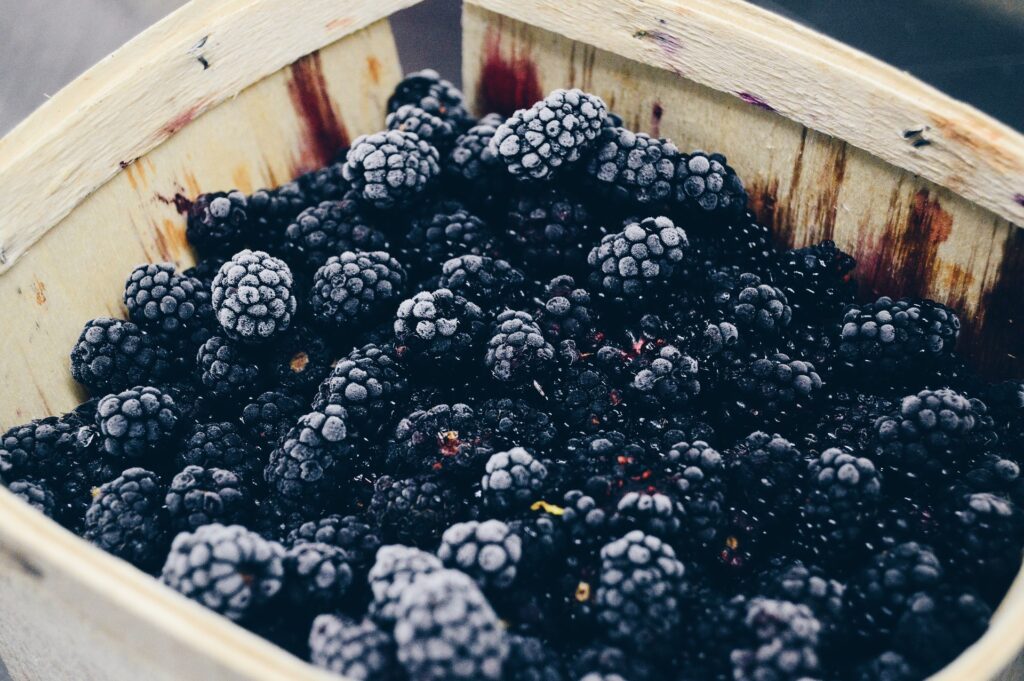
Almost everyone knows that fruits and vegetables play important roles when it comes to physical health. The minerals, vitamins, and antioxidants in fruits and vegetables helps detoxify the body, maintain a healthy waistline, and is also good for the heart. But what many people may not know is that certain fruits and vegetables are also recommended for good oral health.
Of course, there are fruits high in acidic content that can do harm to the enamel of your teeth, and these fruits should be taken in moderation as they also have health benefits, but when it comes to getting the maximum nutrients and at the same time maintaining your dental health, leafy vegetables and fruits high in fiber should make up a major part of your diet.
In this article, we look at some of the fruits and vegetables that are great for oral health and the benefits they deliver.
1. Apples

An apple a day, they say, keeps the doctor away. This is because apples contain vitamins and nutrients that are highly beneficial to the body. But apart from the physical benefit, the fibrous nature of apples makes them a perfect way of promoting healthy teeth. Apples are crunchy and work almost like a toothbrush.
When you eat an apple, the process helps scrub your teeth, freeing them of plaque and other forms of dirt. Chewing apples also results in salivation, and this does a lot in clearing away the malic and citric acid residue left behind from eating the fruit. Finally, chewing an apple stimulates the gums, keeping them healthy as much as possible.
It is important to point out here that eating an apple fruit is not the same as drinking apple juice. The juice version is usually high in sugar, which contributes to tooth decay. Apple juice also lacks fiber, so there is nothing to scrub your teeth and keep them clean.
2. Citrus Fruits
Citrus fruits have lots of vitamin C, a vitamin that is very essential to physical health. But that is not all. Citrus fruits are also important for oral health as the vitamin C content is needed to keep teeth and gums healthy, prevent bleeding and unstable teeth, and accelerate healing of injuries in the mouth. Oranges, lemons, grapes, pineapples are some of the citrus fruits rich in vitamin C.
Dr. Sarah Stockham, principal dentist at New Zealand’s Dental Artistry on a live chat on their website dentalartistry.co.nz warned that these citrus fruits tend to be highly acidic, which can be a downside if care is not taken. The high acidic content in some of these citrus fruits can weaken and demineralize tooth enamel over time.
To avoid the downsides of these fruits, rinse your mouth with water immediately after eating lemons, limes, or oranges, or any other high acidic citrus fruit. This will dilute the acids in your mouth from the fruit. You should also brush after at least thirty minutes and not before, to allow your enamel to settle.
3. Leafy green vegetables

No healthy diet is complete without the inclusion of leafy green vegetables. Extremely low in calories and high in vitamins, minerals, and vitamins, it is no wonder why doctors all recommend that you have lots of leafy greens in your diet.
In addition to the physical health benefits they offer, leafy green vegetables like spinach, cabbage, kale, collard greens and lots more contain vitamins and minerals that will help you maintain and improve your oral health. Some of these vegetables contain a high level of calcium that can build and strengthen the enamel of your teeth.
Lettuce and spinach contain high levels of vitamin A and C, magnesium, calcium, and beta carotene, all of which are highly instrumental in maintaining the pH balance of the body. Some of the nutrients and minerals in these food items, like folic acid, can help treat gum diseases in pregnant women.
Always look for opportunities to add vegetables and greens to anything you eat, whether pizzas, salads, or healthy smoothies.
4. Berries

Most berries, such as cranberries, strawberries, blueberries, and raspberries are high in anthocyanins. Anthocyanins are said to play a huge role in prevention pathogens from attaching and taking over a host’s tissues. In addition to combating free radicals and acting as an antioxidant, anthocyanin also offers anti-viral, anti-inflammatory, and anti-cancer benefits.
Anthocyanins are also known to reduce blood pressure, improve visual function, improve cognitive function, and prevent diabetes. With all these health benefits, it follows that anthocyanin will play a vital role in oral health, fighting plaque, cavities, and mouth inventions. In fact, cranberries contain properties that disrupt the enzymes that promote the forming of the bacteria that lead to tooth decay.
The only downside with berries is that they are so rich in color that eating them can stain the teeth. To avoid this unpleasant condition, always remember to brush your teeth a few minutes after eating berries, or at the very least, rinse your mouth with water. This will reduce the chances of staining.
How much fruit and veggies should you eat in a day?
You are not eating fruits and vegetables for their oral health benefits only. You should do so because they are good for your overall health. But knowing how much fruit and vegetables to eat might be a problem for some people. Or is there anything like eating too many fruits and vegetables?
Experts recommend that adults consume at least 400g of fruit and veggies in a day, and this should be done in five portions. Of course, you may not have the time to keep track of measurements and portions all the time, but if you can do so, fine.
If you don’t like eating fruits and vegetables on their own, you can cook them with your meal in soups, pasta, and even pizza.
Wrapping up
Eating lots of fruits and vegetables can do a lot of wonders for your oral health. This habit can help you avoid most oral health challenges, but is not an alternative to proper oral hygiene and regular dental appointments.
Hopefully, you now know why fruits and veggies are important, and the ones you should focus on for the best results.







